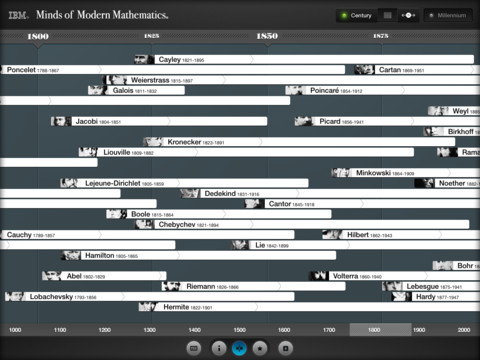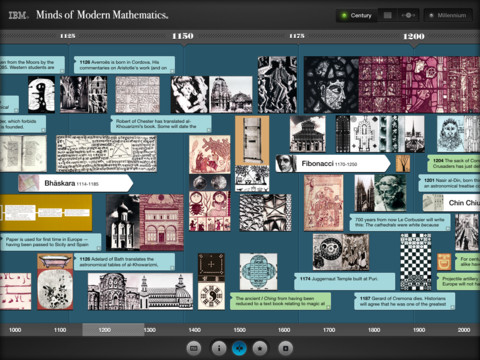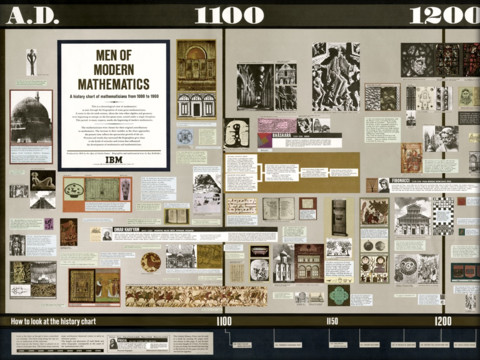Minds of Modern Mathematics is the app created by IBM to describe as mathematicians and mathematics have shaped the world we live. An interactive journey through the centuries (almost 1,000 years) to discover how mathematics has influenced music, science, art, architecture and culture.
Minds of Modern Mathematics is a digital recreation of a 50-foot-wide wall installation that was part of the groundbreaking 1961 Mathematica: A World of Numbers ... and Beyond, sponsored by IBM and designed by the design team Charles e Ray Eames.
The exhibition was displayed at the Los Angeles Museum of Science and Industry in the Exposition Park (now the California Science Center).

The app provides a wealth of historical information, high-resolution portrait and detailed personal biography of mathematicians who lived between 1000 and 1960.
Among other things contains 495 high-resolution images of artifacts selected and painstakingly retouched from the original exhibit Mathematica: A World of Numbers ... and Beyond and 9 original Eames educational films about Mathematica.
[video:http://www.youtube.com/watch?v=txHp-Z3bG3Q]
Previews of the app:







